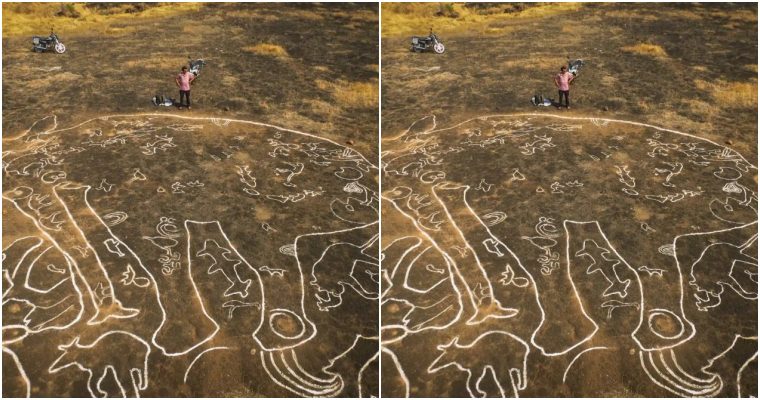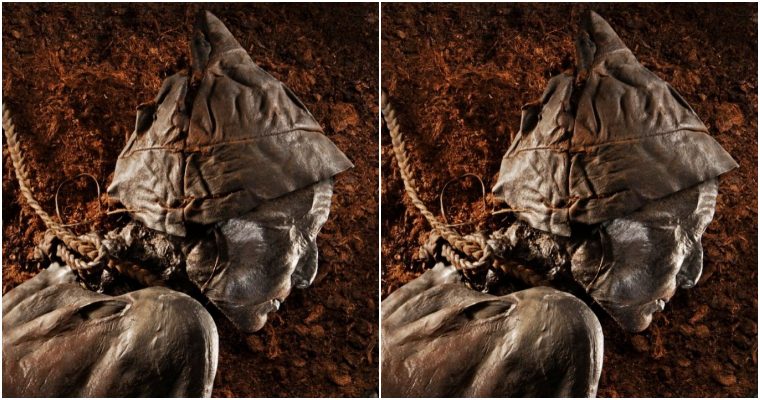The heartwarming sight of snow monkeys soaking themselves in hot spring waters at Japan’s Hell Valley is truly amazing.

Japanese macaques (Macaca fuscata), or more commonly known as snow monkeys, live the farthest north out of all primates in the world. They can be found all over Japan, but one wild group became famous for being the only monkeys in the world that spend hours soaking in hot springs.
Jigokudani, meaning “Hell’s Valley”, is part of the Joshinetsu Kogen National Park, and holds the famous Jigokudani Monkey Park. Surrounded by steep cliffs and cold forests, Jigokudani lies at an elevation of 2500 feet (850 meters). The area is well known for its boiling hot springs that bubble to the surface through the frozen ground, which is covered in snow for more than 4 months every year. As the name suggests, Hell’s Valley is not the most hospitable environment, to say the least.

The macaques were first discovered in 1957, by an employee of the Nagano Electric Railway, Sogo Hara, who happened to hike through Jigokudani. However, the monkeys were facing many threats at the time: the development of a ski resort in the area forced them to move to the lower elevations of the valley.
The monkeys became regular visitors to villages and they started raiding crops from farms. Ultimately, this has led to the villagers to regard the monkeys as pests, and begin hunting them down. With the help of a local guesthouse called Korakukan, Sogo Hara has made efforts to entice back the monkeys into the mountains by leaving apples outside the inn. Luckily, the trick worked and the macaques moved to the area of Korakukan.
Since the guesthouse was established around natural hot springs, it both has indoor and outdoor baths. The monkeys observed humans soaking themselves in the hot springs, and soon, they joined visitors in the outdoor baths. Although checking out the bathing monkeys became very popular with visitors, it raised the issue of water hygiene.

So instead of chasing the monkeys away, Soga Hara and the Korakukan guesthouse decided to create a safe haven for the macaques, thus establishing the Jigokudani Monkey Park. With the local hot spring sources, they built baths just for the monkeys, who could now enjoy the restorative spring waters just for themselves.
Even though the monkeys in the park are wild and free to come and go as they please, they are fed by park rangers 3 times a day. Their diet includes raw barley and soybeans with apples for snacks. This amount of food encourages the monkeys not to go too far, but Monkey Park staff are also careful not to overfeed them.

The question still remains, though: why do these monkeys like to have hot baths, just like us?
Well, in the mountainous regions of Japan, winters can be very harsh, and scientists have always thought that the main reason behind this behavior is that the monkeys are cold.
The results of a study, published in Primates back in 2018, confirm this theory. Researchers from Kyoto University observed 12 female snow monkeys in the park throughout 2 different seasons. Once between April and June, and again from October to December. The team examined how much time the monkeys spend in the water depending on the season. They also collected samples of fecal glucocorticoid, a metabolite that indicates levels of stress in monkeys. It’s often produced from trying to maintain a balanced body temperature.
The team found that the monkeys used the hot baths more often during the winter months. The amount of glucocorticoid in females who spent more time in the water was also found with lower levels of stress hormones than in females who didn’t use the baths at all.
These findings prove that macaques found in the Jigokudani Monkey Park reduce stress by indulging in hot-spring baths. This unique behavior illustrates how flexibility in habits can help challenge stress caused by cold temperatures.

The park has become very popular with tourists from all over the world. And even though the monkeys got used to the proximity of humans, the park remains an important place of conservation and the natural territory of these Japanese macaques.
source: earthlymission.com







